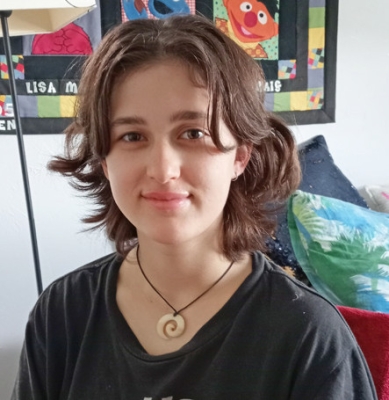David Street, Old City of Jerusalem
Buildings are crammed together as if stuck there haphazardly on a rush out the door, awnings and balconies, potted plants and furniture spilling out onto the street. People brush past one another on their way to who knows where, calling out and laughing cackling laughs. Religious men in long black coats sweat profusely, their magnificent sideburns sticking to their faces. The cobblestones are hot against your bare feet. Grounding. Whichever direction you look, there is something to see: a huddle of tourists, a man selling falafel, an intricate building you can't not admire. You feel small in this cramped city, one tiny cog in a clock older than you can possibly fathom.
The history of this place is everywhere, etched into the walls, soaked into the foundations, trodden into the ground by generations of footsteps. The Mediterranean sun burns into your back, the same sun that kissed the skin of everyone here before you. Waves of heat rise from the cobblestone streets, blurring the air, rising, rising, rising, blending into the sky, bright and blue and brilliant, not a cloud in sight, the only thing breaking the blue the colossal wall surrounding the city, boxing in the houses, the people, the thoughts and prayers of hundreds and thousands of people, dead and alive, the presence of millions of people, breathing, thinking, wishing, praying, living, living, living, dying.
Being.
A soft breeze blows, the sound of a flag flapping weakly provides background noise to those praying before the Wailing Wall. The sound of people rings in your ears, a dissonant harmony of languages, this city a melting pot of culture, religion, ethnicity, people. You can hear the whispers of those before you echo in your ears, urging you to go, live, live your life without regrets. The history here is almost tangible, tangled with present day life, like you could trip and find yourself back in time.
You can smell the heat, heavy and humid, weighing you down. Sweat beads on your forehead, your underarms, the bridge of your nose. Your mouth is dry, sandpaper tongue a dead weight. You take a swig of water, and it's the best thing you've tasted all day. The scent of fried food, rich with seasoning, is carried past you on a breeze, making your mouth water and your stomach growl. The air is thick, a woven tapestry of scents. You can smell people in these crowded streets: a woman who has been overzealous with her perfume; a teenager inconspicuously re-applying their deodorant; a man, sweating through his dress shirt. They continue on with their lives, not noticing you noticing them.
The sky is darkening now, melting into the purples and oranges of twilight. The streets are emptying, the crowd dissipating, people heading home as the air cools and the shops close; the street vendors pack up, shekels jangling in their pockets. The sun sinks behind the wall that surrounds this city, casting a shadow over the ancient streets. If you squint, you can almost see through the fabric of time, see past generations going about their lives, heading home after a long day, generations of you that have loved and been loved, risen and fallen, won and lost, slept and awoken, laughed and cried.
Lived.
You look over this city, this city with history bleeding from every crack, every cranny, every corner, this city full of people, people living and dying and being, and you feel at peace. Here you stand, at the end of a long line of people, looking on at this city, the same city that each of them looked at, and you do what each of them did before you.
You live.
*Nina Anderson, who lives in New Zealand, is the very-nearly-15-year-old granddaughter of Susan and Julian Bell who live in Kfar Vitkin, Israel. Nina wrote this descriptive piece of David Street in the Old City of Jerusalem as an assignment for extended English studies from Cambridge University, UK. She has just been informed that she received a star grade, the highest award, from the Cambridge English Competition. Congratulations Nina.








Comments